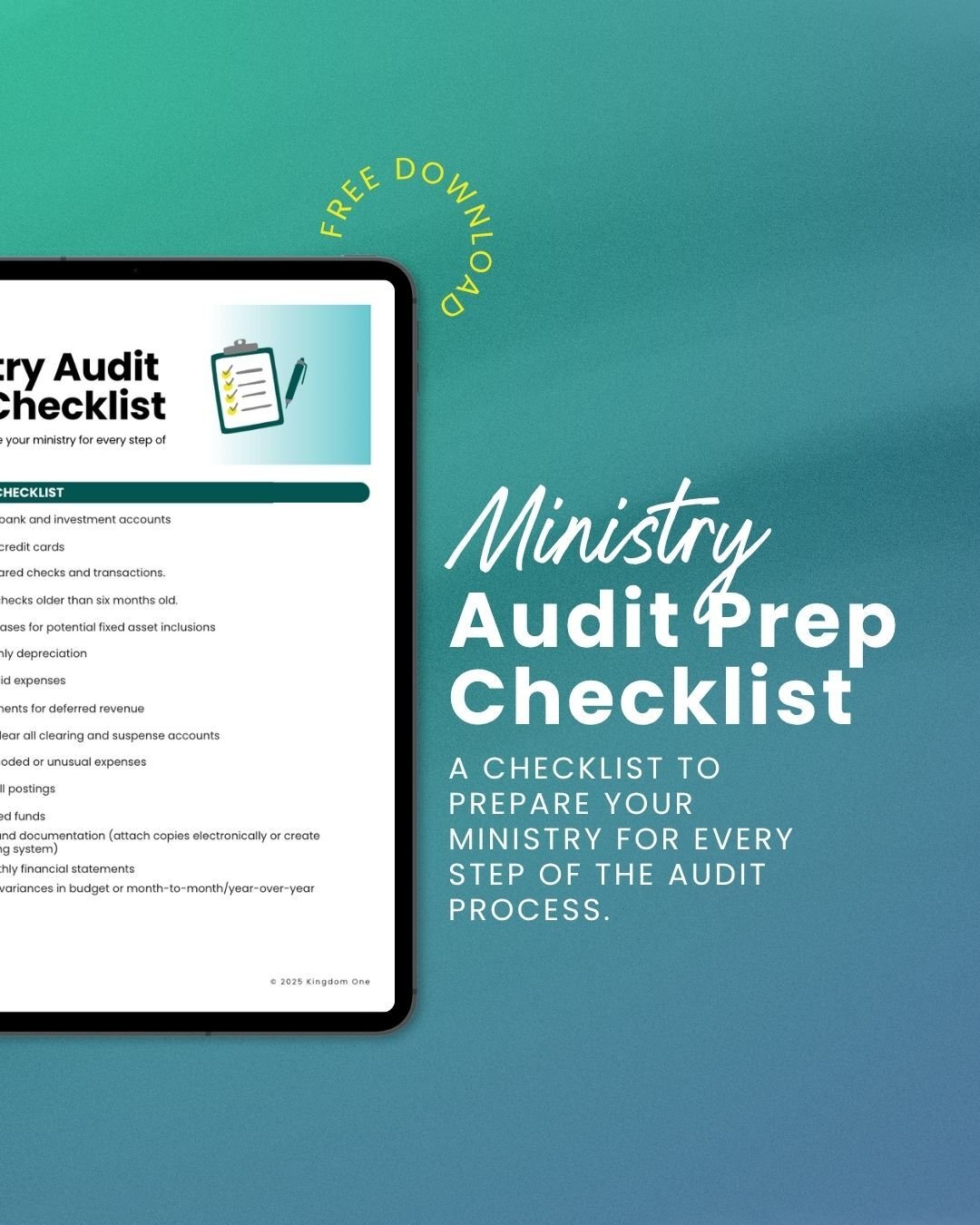3 min read
Church Audit Made Simple: 3 Steps to Prepare with Confidence
 Jennifer Aufrecht
:
Oct 27, 2025 8:00:00 AM
Jennifer Aufrecht
:
Oct 27, 2025 8:00:00 AM

Church Audit Made Simple:
3 Steps to Prepare with Confidence
If you know, you know…even the mention of an “audit” or “review” can elevate your blood pressure and leave you lying awake at night, thinking about what they might find when reviewing your work or how you will get that spreadsheet completed by the deadline.
If you don’t know, you are probably thinking, “I’m glad I don’t know; that sounds terrible!” But the reality is that an audit is our friend. Auditors can be, too. They are typically very nice people with an intimidating job title who really do want to help you be the best that you can be.
Here are 3 steps to help you prepare and enter an audit with confidence:
1. Church Expense Documentation: What Every Receipt Must Show
Make it a goal to only pay a bill or mark a credit card bill as complete when you have a receipt or invoice that shows the vendor, amount, items purchased, and date of the transaction or service. If an auditor, reviewer, or even your boss asks about a purchase, you should always have backup to show the details.
Get a clear business purpose from the person who initiated the transaction. A business purpose will give the “why” to the details on the invoice or receipt. If someone gives you a business purpose that says “Purchase nitrile gloves,” this is not a business purpose. A complete business purpose will answer “who, what, why, where, when & how”, so “Purchased nitrile gloves for hospitality team members to use for food prep on Sunday mornings" is a complete business purpose.
2. Always Count with Two: Cash-Handling Best Practice
Cash and checks that come in for offerings or donations should be handled by two people. Gather a team of at least two people to count the offering. This can be done on Sunday morning, but it is best practice to do this on Monday or Tuesday in the quiet and slower pace of the office. If you handle a large amount of cash, cameras in the space where counting, locked doors, and covered windows can keep the amount of cash in possession less “public.” While we know our team members have background checks and have been vetted to handle money, we also know that fraud happens in churches. As a best practice, provide guardrails to keep you and your team above reproach.

Provide a clear process for ministries and departments that handle money. Train them to turn in the money the day they receive it, even if it means multiple money drops during the week. Also, provide a safe for drops that can only be accessed by a few people, typically not the counting and finance team, where possible.
3. Build a Monthly Close Rhythm to be Audit-Ready All Year
How do you eat an elephant? One bite at a time! Monthly and quarterly tasklists will help you be audit-ready at the end of the fiscal year. If you don’t already have a month-end closing process, start one as soon as possible. Reconcile bank accounts and review outstanding checks. Review large purchases that will need to be added to your fixed assets list and store related invoices and receipts in a fixed assets folder. Create a depreciation schedule and record it monthly instead of waiting for the end of the year. Review prepaid expenses and deferred revenue on a monthly basis.
Some tasks can be done quarterly. Reconcile your donor software to your accounting software. Finding a discrepancy is easier if you are looking at three months instead of a full year. Review your quarterly payroll reports and make sure it matches your general ledger. Follow up on any outstanding receivables or payables (the ones you are waiting for documentation so you can pay them!)
Download our free Audit Checklist to help walk through these steps with your own systems.
We all want to be good stewards of the resources that God has given us. For some, it might be a few minor adjustments, while others might need a bit more time to feel “audit-ready.” Regardless of where you are today, pick one suggestion that is not your current practice and begin to think about the steps that will be needed to implement it. Kingdom One exists to help you become more courageous, healthy, and effective. What’s your next step, and how can we help you?

